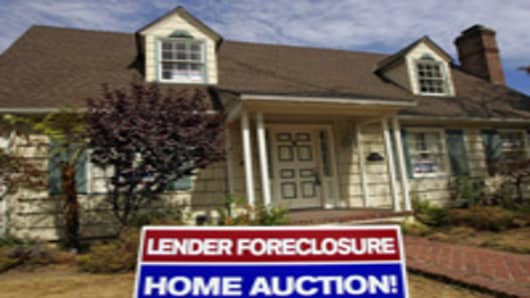The concern has been that certain sections of the credit markets have frozen up as banks and investors have grown fearful about getting repaid because of the surge in defaults on mortgage loans, especially subprime loans made to borrowers with poor credit.
Worries over the tightening credit roiled global stock markets most of August and carried into September. The Dow Jones industrial average, which closed at a record 14,000.41 July 19, tumbled 8.2% by mid-August. Since last Tuesday's rate cut, the index has bounced back 3.1%.
"The hope is that the Fed rate cut would send the signal that government is concerned and willing to continue to analyze the situation so that the market can relax," Williams said. "We believe we still have a market that is correcting, but we don't expect any drastic changes" on the rate of defaults.
"Our economic fundamentals are strong. Loan defaults are half of what they were in the 1980s and interest rates are low compared to the double-digit rates of 20 years ago," she said.
Subprime mortgages must stay despite the current crisis as they play an important role in increasing U.S. home ownership, Williams also said.
"Subprime mortgages democratize credit, and so we don't want to throw that option away," she said. "Not all of these loans result in foreclosures."
About 5% of all U.S. mortgages are subprime, and only a fifth of those subprime mortgages are in risk of default, she noted.
Williams said she hoped the U.S. Congress will pass Federal Housing Administration, or FHA, reforms to expand federal backing of mortgages.
The reform would allow the FHA, which insures mortgages for low- and middle-income borrowers, to back refinanced loans for tens of thousands of borrowers delinquent on payments because their mortgages have reset to sharply higher rates from low initial "teaser" levels.
Williams said the government would increase efforts to promote financial literacy, and that it "must take every step" to stop predatory loans that target low-income or minority borrowers -- often those who have little education or poor English language skills.
"We found that most of the people with unaffordable subprime loans did not use a counselor. Many did not even read their contracts," Williams said. "That is why we are promoting financial literacy and housing counseling programs."


